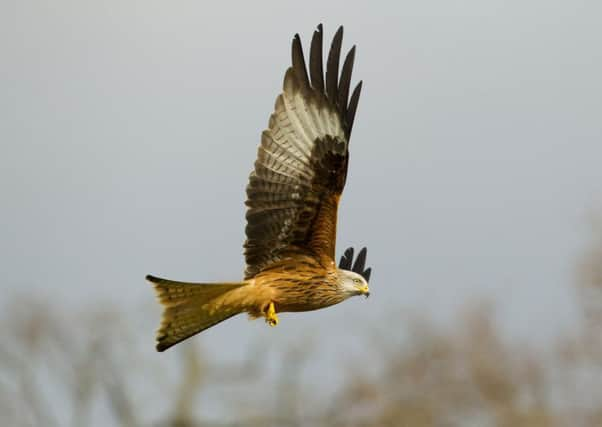Scots landowners hit in wildlife crime crackdown


Government nature agency Scottish Natural Heritage (SNH) has placed a three-year restriction on the use of general licences on four properties in “wildlife crime hotspots” in Stirlingshire and the Borders.
These licences permit land managers to carry out operations that would otherwise be illegal, including killing common species of wild birds to safeguard crops or animals.
Advertisement
Hide AdAdvertisement
Hide AdThe decision follows police investigations into poisoning and illegal use of traps at Raeshawe Estate and Corsehope Farm in the Borders, and Burnfoot Estate and Todhalls Farm in Stirlingshire.
“There is clear evidence that wildlife crimes have been committed on these properties,” said Nick Halfhide, director of operations at SNH.
“Because of this, and the risk of more wildlife crimes taking place, we have suspended the general licences on these four properties for three years.
“They may, though, still apply for individual licences, but these will be closely monitored.
“This measure should help to protect wild birds in the area, while still allowing necessary land management activities to take place, albeit under tighter supervision.
“We consider that this is a proportionate response to protect wild birds in the area and prevent further wildlife crime.”
The new measure comes on top of other recent actions aimed at tackling wildlife crime, including the introduction of vicarious liability for offences against wild birds in 2011.
Duncan Orr-Ewing, head of species and land management at conservation charity RSPB Scotland, welcomed the restrictions as a further weapon in the fight against wildlife crime.
Advertisement
Hide AdAdvertisement
Hide AdHe added: “The use of the open general licence to control what are considered by some to be ‘pest species’ of bird, including crows and magpies, for conservation and other legal purposes, is a privilege and not a right.”
Environment minister Dr Aileen McLeod said: “The general licence system is a light-touch form of regulation. It is clearly sensible to apply closer scrutiny to areas where there is good evidence that wildlife crime has taken place, and we believe that this will prove a useful tool in the fight against bird of prey persecution.”